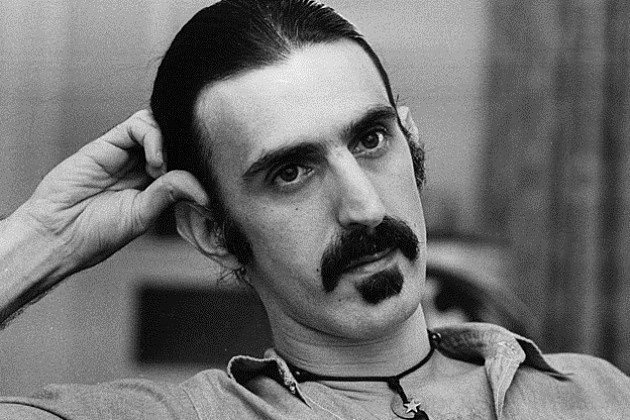Looking back on previous essays I’ve posted here a great deal of them involve metalogic which is the study of logical systems in relation to the study of what we term the paranormal which led me to the conclusion that thought in general is based on incomplete knowledge and yet how much of this doodling is accepted as being objective?
How are we educated as children within the developmental curve of self awareness?
The simple answer is by rote repetition that involves memorization which cannot be erased but can be altered, or variegated. Social normative behavior as a self regulating form of logic is amazingly off the mark and yet this disconnect is not even registered on the radar of what could be called “zombie intelligence” which brings to mind, the pointed critiques of Frank Zappa which he used subversively in his humor…... while the gist of his musical constructions used anti-structure with a structural basis as a sort of a philosophical skepticism toward the normative. War in peace comes to mind as an offshoot of a disconnect that is lodged permanently in a pathway, perhaps even neurologically, so sublimated as the absurd becomes logical, even enshrined.
“When persons are present to one another they can function not merely as physical instruments but also as communicative ones. This possibility, no less than the physical one, is fateful for everyone concerned and in every society appears to come under strict normative regulation, giving rise to a kind of communication traffic order…”
-Erving Goffman: Philip Manning, Erving Goffman and Modern Sociology (Stanford University Press, 1992), p. 88.
To what extent has social scripting influenced the study of anomalous experience? Has this rule making or series of pathways infiltrated the various theories on this subject from Roswell, to Demons, to Alien Abductions to nearly every categorical reference we can imagine in a overwhelming spectrum. Perhaps we can call this the psychology of the normative, which I suspect also plays a role in it’s relationship with neurology.
The normative is defined as:
1.of or pertaining to a norm, especially an assumed norm regarded as the standard of correctness in behavior, speech, writing, etc.
2.tending or attempting to establish such a norm, especially by the prescription of rules: normative grammar.
3. reflecting the assumption of such a norm or favoring its establishment:
a normative attitude.
I have observed in the past, many terms applied to the anomalous have no exact root in defining whatever phenomenon it describes, as if to place a term on the unknown is preferable to actually understanding it’s nature. I have called this normative behavior in the past, a pseudo-dictionary.
“With no fact as a referent, what is normative is purely a matter of preference.”
-Ravi Zacharias: The Real Face of Atheism. 2004. p. 56. ISBN 9780801065118.
The context of these pathways appear to create certain results that conform to social scripting or more specifically, imprinting. The subject is not the object described. The pathway overrides the topography, over and over again and it leads me to question the repeatability of stereotyping in language that allows communication lowers cognizance itself. Ancient Astronauts , UfO,s etc
The resemblance to the laws and pathways of theology come to mind which seems to be equally imprinted in it's 21st century equivalents as markers without a direct association to anything other than to refer to itself.
Another subject of past posts.
“ It is remarkably difficult to avoid falling under the spell of our own intellectual heritage. As we analyse and reflect on our normative concepts, it is easy to become bewitched into believing that the ways of thinking about them bequeathed to us by the mainstream of our intellectual traditions must be the ways of thinking about them. … The history of philosophy, and perhaps especially of moral, social and political philosophy, is there to prevent us from becoming too readily bewitched. The intellectual historian can help us to appreciate how far the values embodied in our present way of life, and our present ways of thinking about those values, reflect a series of choices made at different times between different possible worlds. This awareness can to liberate us from the grip of any one hegemonal account of those values and how they should be interpreted and help understood. Equipped with a broader sense of possibility, we can stand back from the intellectual commitments we have inherited and ask ourselves in a new spirit of enquiry what we should think of them.
-Quentin Skinner, Liberty Before Liberalism (1998), pp. 116-117
Are these voluntary commitments? I tend to think not which is a daunting prospect but then again if self comforting balm is the arbiter of the truth then we may as well believe any old tale, which the majority buy, hook line and sinker.
Naive realism may be our fate.
Naive realism may be our fate.

No comments:
Post a Comment